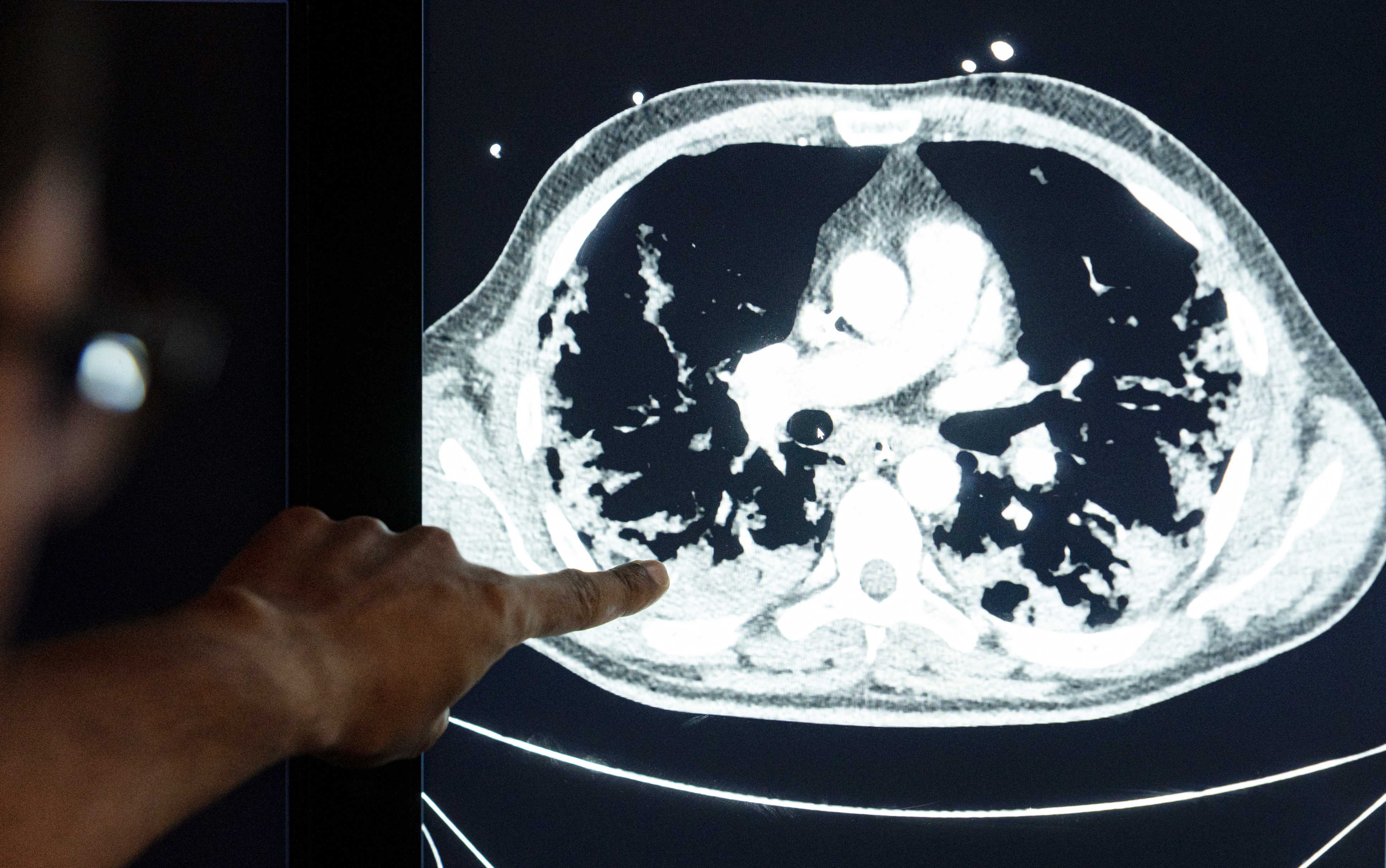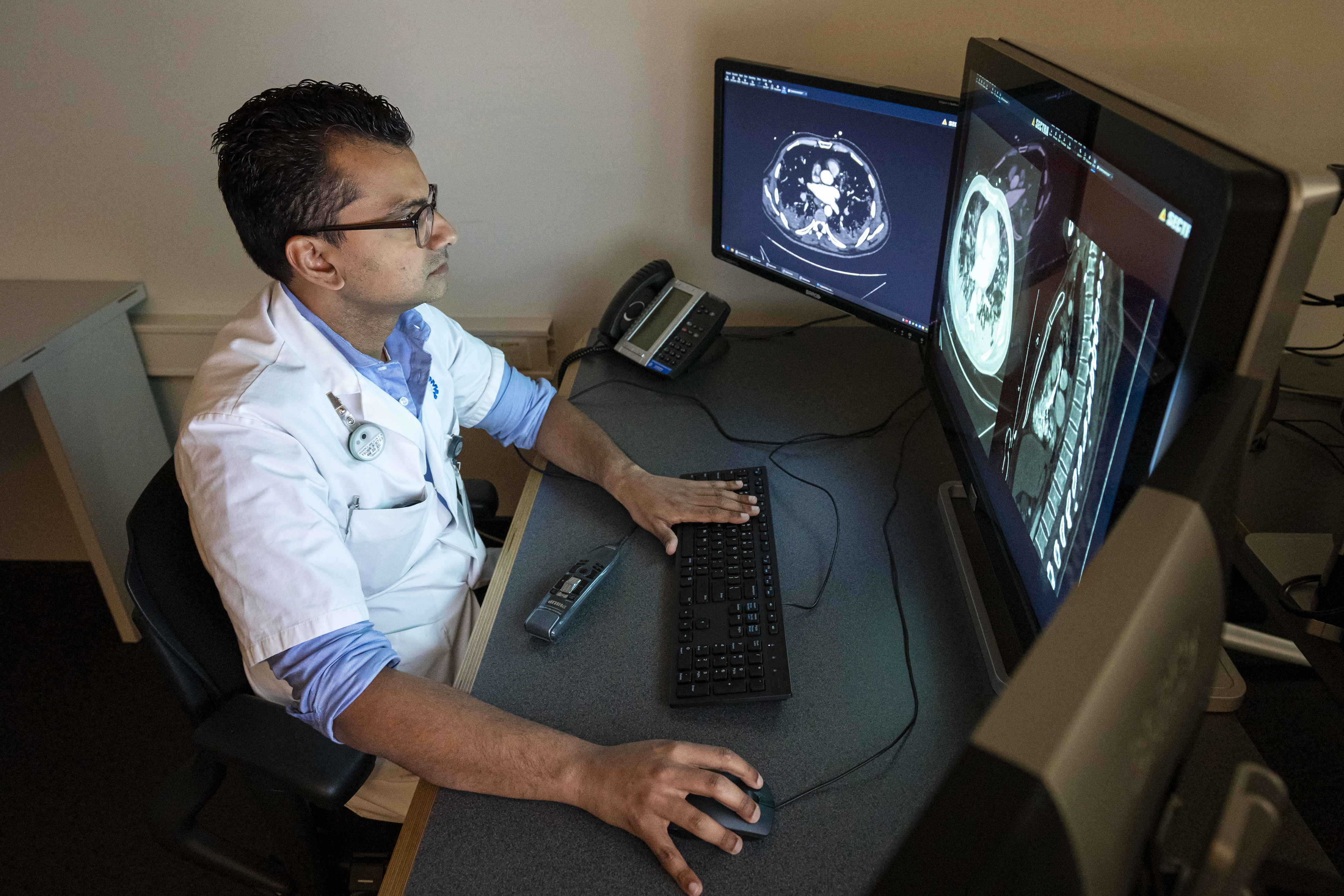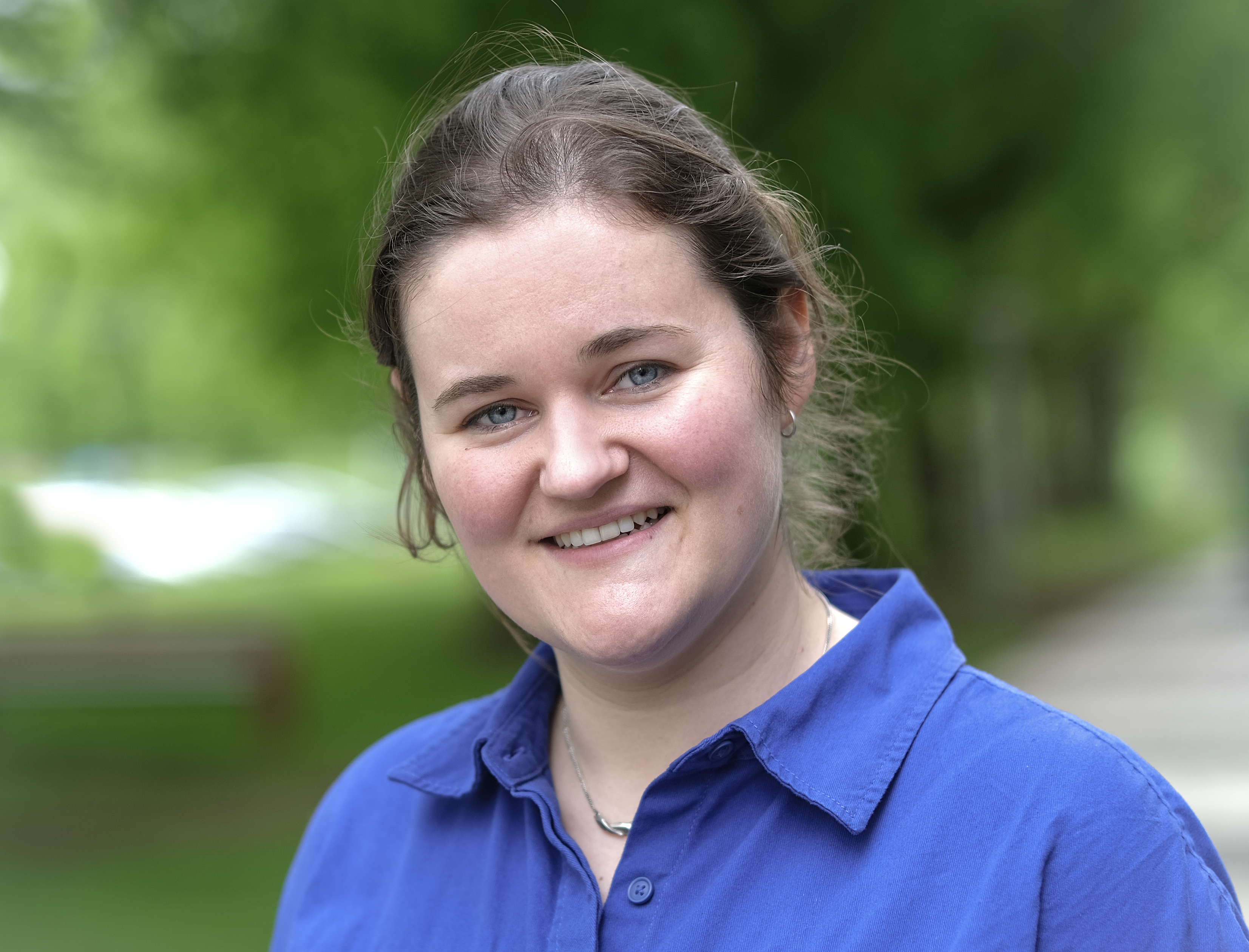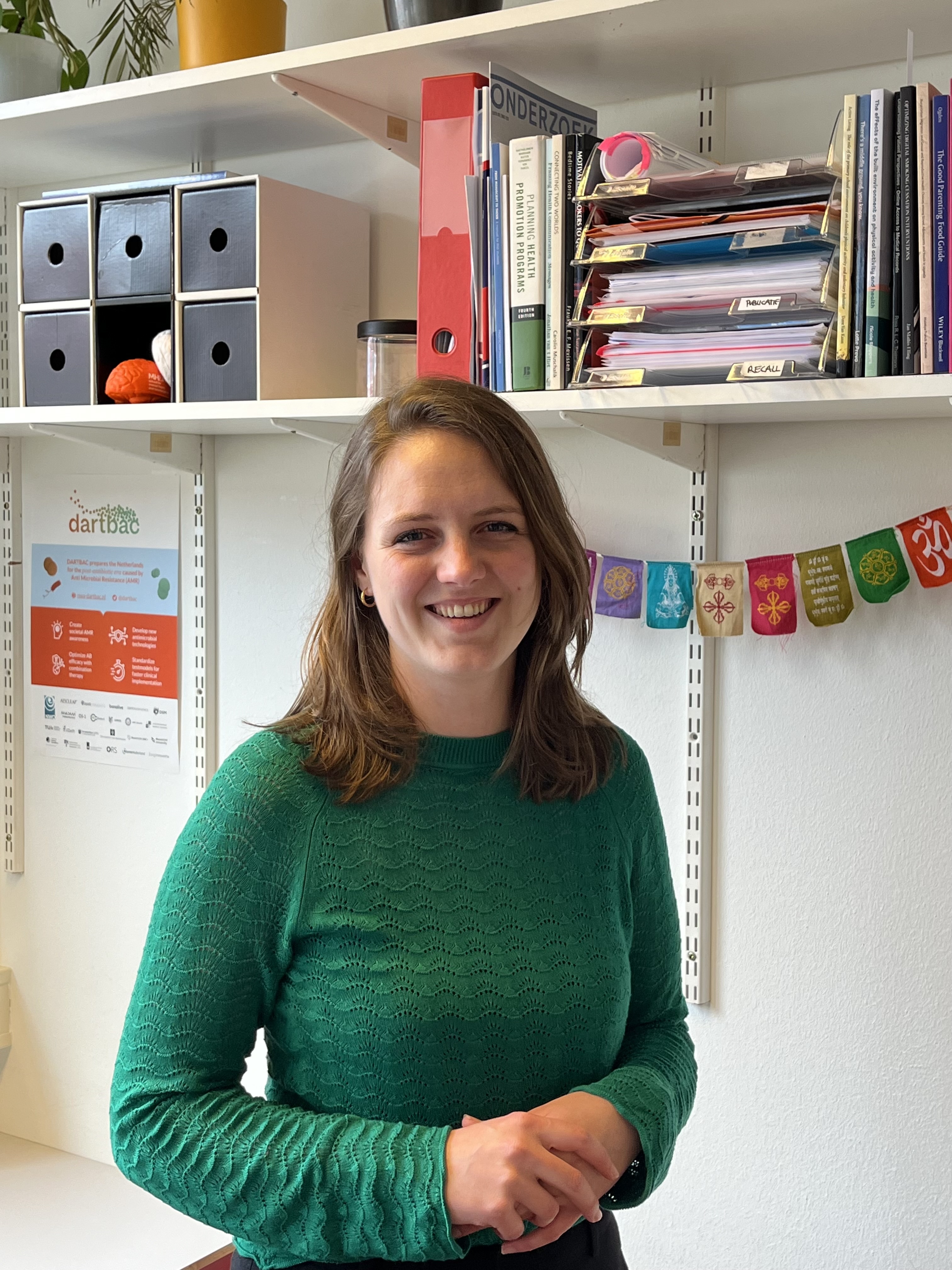Research into risk factors for developing chronic complaints after COVID-19
Many patients who have had COVID-19 continue to have health complaints for a long period of time. The long-term effects of the damage caused by the virus and the body's response to it is unclear. A public-private consortium P4O2 (Precision Medicine for more Oxygen) which consists of a team of researchers including a group of Maastricht University/Maastricht University Medical Center+, private parties and patient representatives, will investigate how these complaints develop and which factors can predict them in future patients. The project is co-funded by the PPP Allowance made available by Top Sector Life Sciences & Health (Health~Holland).

Lung damage COVID-19 (copyright: Thijs Rooimans)
State-of-the-art measurements in post-corona clinics

Patients who have been admitted to hospital because of COVID-19 and those who consulted their GP after remaining ill for a long time after COVID-19, will be referred to a post-corona clinic where lung function tests, CT scans, questionnaires, and laboratory tests will be performed. For this P4O2-COVID study, additional tests will be performed in middle-aged patients when they visit the clinic approximately 3 and 12 months after their initial recovery from COVID-19.
State-of-the-art measurements and analyses that are applied within renowned scientific studies will be carried out in the 100 people participating in this study. For example, additional biological samples will be taken to perform various –omics measurements (a method to very extensively map biological and chemical process, for example, gene regulation, metabolism, or bacteria in the body) to gain insight into possible differences in the biological response of patients with long-term complaints. The exposome of these patients will also be mapped. These are environmental and social factors which people experience in daily life, such as chemicals, air pollution, smoking, dietary intake, and physical activity. Participants will receive devices that measure their exposure and physical activity, for example a bracelet that collects substances from the environment. CT scans, which are part of standard care, will be analyzed using the latest artificial intelligence methods. Participants will also be offered an intervention focused on nutrition and physical activity that is expected to have a beneficial effect on quality of life. Furthermore, with the help of experimental cell models, laboratory research will help to identify factors and mechanisms that predict a more serious course of disease. Using big-data analysis, patterns in the data will be defined that predict who is susceptible to developing chronic complaints after the disease in future patients.
This research fits the missions of the Top Sector LSH, as there is attention for unhealthy lifestyle and the living environment (mission I) and for care provided to people within their own living environment (mission II). The P4O2-COVID study will reduce the proportion of people with a chronic disease or lifelong disability (mission III).
About the consortium

The P4O2-COVID study will be performed by partners from the P4O2 consortium; this consortium originated from the National Program for Lung Research, which the Netherlands Respiratory Society (NRS) developed together with other lung associations, researchers, healthcare professionals, patients, and companies to generate more attention for lung diseases and to improve cooperation between lung researchers in the Netherlands. Collaboration with industry will promote implementation of the acquired knowledge.
Participating researcher from Maastricht University/Maastricht UMC+ are Dr. Rosanne Beijers, Dr. Ramon Langen, and professor Annemie Schols. They will investigate the effects of life style interventions focused on nutrition and exercise in preventing long-term complaints following COVD10 infection. In addition, the underlying mechanisms involved in the protective effects of nutrition and physical activity will be explored using experimental cell models.
Other partners and sponsors of the P4O2 COVID project are Amsterdam UMC, LUMC, UMCG, UMC Utrecht, Utrecht University, Boehringer Ingelheim, Breathomix, Fluidda, Novartis, Ortec Logiqcare, Philips, Quantib-U, Smartfish, SODAQ, Thirona, and TopMD. The collaboration project is co-funded by the PPP Allowance made available by Health~Holland, Top Sector Life Sciences & Health, to stimulate public-private partnerships (https://www.health-holland.com). The consortium is led by Prof. Dr. Anke-Hilse Maitland - van der Zee from the Amsterdam UMC, location AMC. More information is available at www.p4o2.org and via nrs@nrs-science.nl
Also read
-
As a patient in a hospital, you see many different faces at your bedside every day: a nurse measuring your blood pressure, a doctor or nurse practitioner informing you about the care plan, and a nutritionist providing you with the right food and drinks. Although all these caregivers have their own...
-
Alisa moved from Moscow to the Netherlands at 17 years old to become a first-year Regenerative Medicine and Technology (RMT) bachelor’s student. Turns out Alisa’s adventurous spirit pushes her to brand-new things, such as the RMT bachelor’s programme and her hobby Tribal Fusion dancing.
-
In the upcoming months, the Faculty of Health, Medicine and Life Sciences will share tips on Instagram on how to live a healthier life. Not just a random collection, but tips based on actual research happening at our faculty. The brains behind this idea are Lieve Vonken and Gido Metz, PhD candidates...


